From E3 Initiative Professional Member: Kim Burkland-Ward, LICSW

In psychotherapy clinical practitioners sometimes encounter a vast array of human experiences, some of which defy conventional understanding. Near-death experiences (NDEs), past life memories, non-human intelligence abduction trauma, and paranormal encounters are examples of exceptional or anomalous experiences that can profoundly impact individuals. When addressing these experiences, the primary goal in psychotherapy is not to verify the material evidence but to help clients process the associated symptoms, cope with any losses because of the experience, navigate the ontological shock, and integrate or adapt these experiences into their lives as we would any other trauma or transformation. Evidence-based models such as Internal Family Systems (IFS) and Eye Movement Desensitization and Reprocessing (EMDR) offer effective frameworks for this therapeutic journey.
Recognizing Exceptional Experiences
Exceptional experiences encompass a broad range of phenomena that material science may or may not have physical evidence for including:
- Unexplained Presences: Perceptions of angels, spirit guides, ghosts, or other entities within the client’s cultural belief system.
- Encounters with Non-Human Intelligences: Encounters with UFOs, UAPs, USOs, Sasquatch or other cryptids.
- Strange Phenomena: Unexplained bright lights, orbs, unusual body marks, and missing time.
Understanding the Therapeutic Focus
When clients present with exceptional or anomalous experiences, it is crucial for clinicians to prioritize the following aspects:
- Symptom Management: Addressing anxiety, depression, PTSD, or other symptoms that may arise from the experience.
- Processing Losses: Helping clients grieve any losses they associate with their experiences, whether they are physical, relational, or existential.
- Ontological Shock: Supporting clients as they grapple with a fundamental transformation in their worldview.
- Identity Transformation: Aiding in the integration of new values and perspectives or a shift in religious and spiritual beliefs if any.
The Clinician’s Role
Our training as clinicians often teaches us to “meet the client where they are at” and to not impose our values or beliefs onto the client. Exceptional or anomalous experiences are no exception and perhaps a new area for many clinicians to examine their own beliefs, values, and judgements. We must approach these experiences with a stance of suspended disbelief. We will be most effective if we “enter into” the client’s reality so to speak by assuming they are telling the truth. This approach both validates the client’s experience and fosters a therapeutic alliance based on trust and understanding. Again, barring any mental illness, it is often not important nor necessary for the clinician to have verifiable, material evidence. The client’s experience is the important focus.
The E3 Initiative professional consultation group, which provides monthly case consultation and professional education opportunities, can be beneficial. Here mental health professionals from around the globe find support and benefit from learning opportunities presented by both like-minded peers and outside experts.
Assessment of Exceptional Experiences
Given the stigma of such experiences talking to a licensed mental health professional may be last on a client’s list of whom to talk about this with because we are in a position of power. If your client tells you about an exceptional experience, know that they had enough trust and courage to bring the experience up to you. It is common for people to brush off the experience, doubt or deny it even happened. Before delving into any therapeutic process, a thorough assessment is beneficial as with any other presenting issue. The following are important steps to consider:
- Mental Health Screening: Evaluate for any underlying mental illnesses such as psychosis, substance misuse, or suicidality.
- History Taking: Obtain a comprehensive history, including the onset and context of the exceptional or anomalous experience(s).
- Psychological Symptoms: Assess the client’s psychological symptoms, including their level of dissociation and overall mental health.
- Present coping mechanisms: Assessing how the client is presently coping, what methods they are using, and what supports they have.
Internal Family Systems Therapy: A Non-Pathologizing Approach
IFS is particularly effective for treating clients with exceptional or anomalous experiences due to its non-pathologizing and non-judgmental nature. IFS therapy focuses on the client’s internal experience and memories, with the therapist leveraging their non-egoic state of Self-Energy to facilitate healing. Here’s how IFS can be beneficial:
- Empathic Exploration: The therapist enters the client’s inner world empathically, helping them explore the source of their pain.
- Validation and Understanding: Clients feel seen, heard, and understood in a society that often negates or dismisses their experiences and encourages them to do the same.
- Inner Harmony: IFS helps clients harmonize their internal parts, fostering a sense of inner peace and giving the client a framework and method to continue to help themselves going forward.
EMDR: Processing Traumatic Memories
EMDR is another effective, non-judgmental model for working with trauma related to anomalous experiences. By using bilateral stimulation and the appropriate protocol, EMDR helps clients reprocess traumatic memories and reduce the emotional charge associated with them. This can be particularly helpful for:
- Traumatic Memories: Processing distressing memories associated with near-death experiences, alien abduction, or other anomalous encounters.
- Symptom Reduction: Alleviating symptoms of PTSD, anxiety, and depression related to these experiences.
- Integration: Facilitating the integration of these experiences into the client’s overall life narrative.
While there are more methods for treating any symptoms that result from exceptional or anomalous experiences IFS and EMDR can both be highly effective. Using evidence-based models like IFS and EMDR, clinicians can provide compassionate, effective care for clients with exceptional and anomalous experiences. By suspending disbelief, validating the client’s experiences, and focusing on symptom management and integration, clinicians can help clients navigate their complex inner worlds and find peace and understanding in their exceptional experiences.
For more information on:
- E3 Initiative visit: https://e3-initiative.com
- IFS: https://ifs-institute.com
- EMDR: https://www.emdr.com

